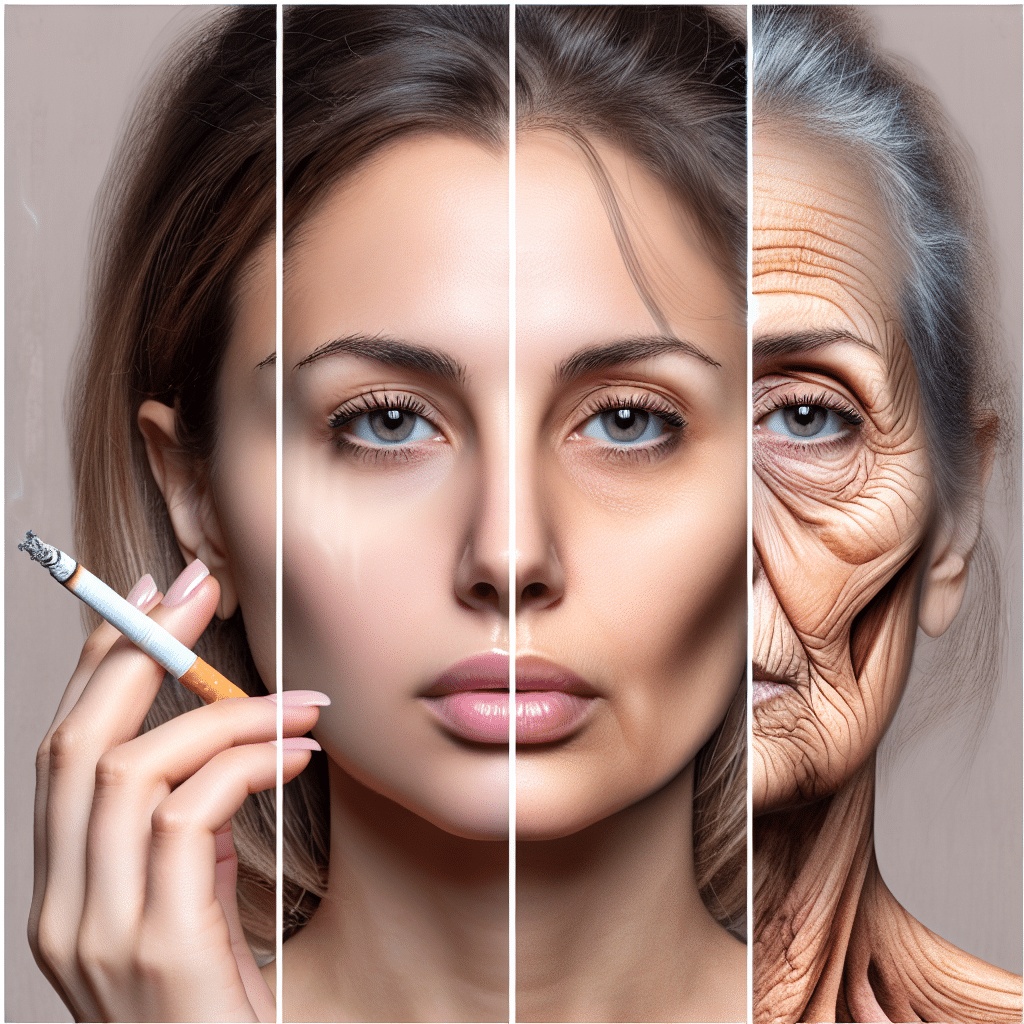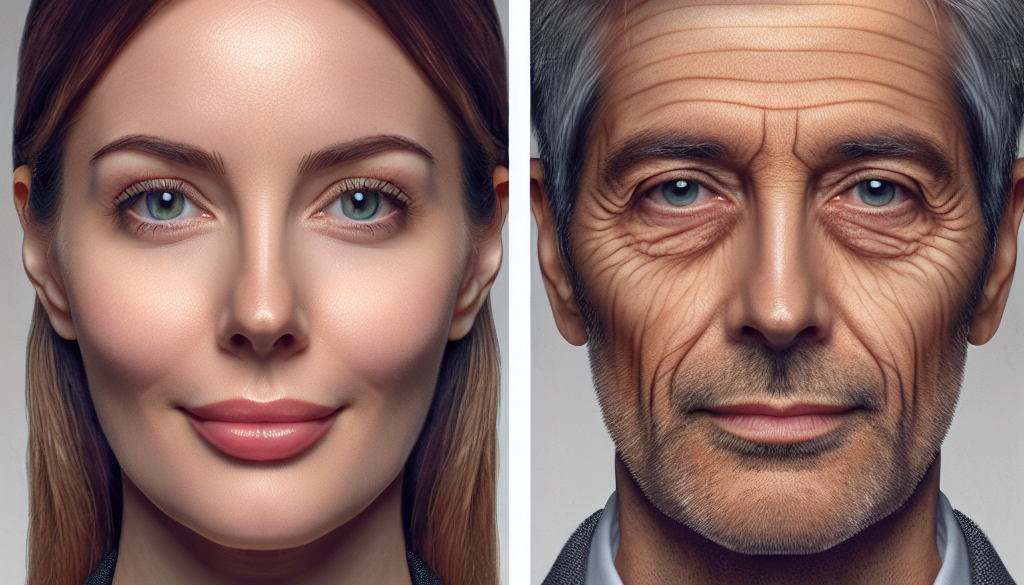What ages your face the most?
-
Table of Contents
- Factors That Age Your Face the Most: Insights and Prevention
- 1. Sun Exposure and UV Radiation
- 2. Smoking and Exposure to Pollutants
- 3. Poor Nutrition and Dehydration
- 4. Stress and Lack of Sleep
- 5. Repetitive Facial Expressions
- 6. Genetic Factors
- Preventive Measures and Treatments
- Conclusion
- ETprotein: Enhance Your Skin’s Health with Quality Protein Products
Factors That Age Your Face the Most: Insights and Prevention

Aging is a natural process that everyone goes through, but certain factors can accelerate the appearance of aging on the face. Understanding what contributes to facial aging can help in taking preventive measures to maintain a youthful appearance for as long as possible. In this article, we will explore the most significant factors that age your face and provide insights into how you can protect your skin.
1. Sun Exposure and UV Radiation
One of the most significant contributors to premature facial aging is exposure to the sun’s ultraviolet (UV) rays. UV radiation breaks down the skin’s collagen and elastin fibers, leading to wrinkles, sagging, and a leathery texture. Moreover, it can cause hyperpigmentation, such as age spots and uneven skin tone.
- Statistics show that people who use sunscreen with an SPF of 15 or higher daily show 24% less skin aging than those who do not use sunscreen regularly.
- Case studies have demonstrated that individuals with outdoor occupations or hobbies tend to exhibit more signs of facial aging compared to those who limit their sun exposure.
2. Smoking and Exposure to Pollutants
Smoking is notorious for its detrimental effects on health, and it also has a profound impact on the skin. The chemicals in cigarette smoke damage collagen and elastin, while the act of smoking can lead to wrinkles around the mouth. Additionally, exposure to environmental pollutants can create free radicals that damage the skin.
- Research indicates that smokers are nearly five times more likely to have wrinkled facial skin than non-smokers.
- Studies have found that living in highly polluted urban areas can accelerate skin aging, particularly pigmentation spots.
3. Poor Nutrition and Dehydration
A diet lacking in essential nutrients can deprive the skin of the compounds it needs to maintain elasticity and radiance. Dehydration, on the other hand, can lead to dry, flaky skin and emphasize the appearance of fine lines.
- Diets high in sugar and refined carbohydrates can lead to glycation, a process that damages collagen and elastin.
- Consuming foods rich in antioxidants, such as fruits and vegetables, can help protect the skin from oxidative stress.
4. Stress and Lack of Sleep
Chronic stress and insufficient sleep can lead to increased cortisol levels, which may break down skin collagen. The resulting loss of skin elasticity and firmness contributes to the formation of wrinkles and a tired appearance.
- Studies have shown that high stress levels can accelerate cellular aging, including skin cells.
- People who sleep less than six hours a night are more likely to show signs of premature skin aging and a reduced ability of the skin to repair itself from environmental stressors.
5. Repetitive Facial Expressions
Repeated facial movements and expressions, such as squinting, frowning, or smiling, can lead to fine lines and wrinkles over time. These are known as expression lines and are often the first signs of aging on the face.
- Frown lines, crow’s feet, and smile lines are common examples of wrinkles formed by repetitive facial expressions.
- Botox and other neuromodulators can temporarily reduce the appearance of these lines by relaxing the underlying muscles.
6. Genetic Factors
Genetics also play a role in how quickly one’s face ages. Some people may be more prone to developing wrinkles and sagging skin due to their genetic makeup.
- Studies of twins have shown that even with similar lifestyles, there can be noticeable differences in the degree of facial aging due to genetic factors.
- Genetic predisposition to certain skin conditions, such as dry or sensitive skin, can also affect the aging process.
Preventive Measures and Treatments
To combat the factors that age your face the most, consider the following preventive measures and treatments:
- Use broad-spectrum sunscreen daily and seek shade during peak sun hours.
- Avoid smoking and limit exposure to pollutants where possible.
- Maintain a balanced diet rich in vitamins, minerals, and antioxidants.
- Ensure adequate hydration by drinking plenty of water throughout the day.
- Manage stress through relaxation techniques and aim for 7-9 hours of quality sleep each night.
- Consider professional treatments such as laser therapy, chemical peels, or dermal fillers to address signs of aging.
Conclusion
In conclusion, several factors contribute to facial aging, with sun exposure, smoking, poor nutrition, stress, repetitive facial expressions, and genetics being the most significant. By understanding these factors and taking appropriate preventive measures, you can help slow down the aging process and maintain a youthful complexion. Remember that a consistent skincare routine, healthy lifestyle choices, and professional treatments can make a significant difference in the appearance of your skin.
ETprotein: Enhance Your Skin’s Health with Quality Protein Products
ETprotein company’s protein products can play a vital role in supporting skin health. Proteins are essential for the repair and regeneration of skin tissues, and incorporating high-quality protein sources into your diet can help maintain skin elasticity and firmness. ETprotein offers a range of organic bulk vegan proteins that are non-GMO and allergen-free, making them an excellent addition to any skincare regimen.
About ETprotein:
ETprotein, a reputable protein and L-(+)-Ergothioneine (EGT) Chinese factory manufacturer and supplier, is renowned for producing, stocking, exporting, and delivering the highest quality organic bulk vegan proteins and L-(+)-Ergothioneine. They include Organic rice protein, clear rice protein, pea protein, clear pea protein, watermelon seed protein, pumpkin seed protein, sunflower seed protein, mung bean protein, peanut protein, and L-(+)-Ergothioneine EGT Pharmaceutical grade, L-(+)-Ergothioneine EGT food grade, L-(+)-Ergothioneine EGT cosmetic grade, L-(+)-Ergothioneine EGT reference grade and L-(+)-Ergothioneine EGT standard. Their offerings, characterized by a neutral taste, non-GMO, allergen-free attributes, with L-(+)-Ergothioneine purity over 98%, 99%, cater to a diverse range of industries. They serve nutraceutical, pharmaceutical, cosmeceutical, veterinary, as well as food and beverage finished product distributors, traders, and manufacturers across Europe, USA, Canada, Australia, Thailand, Japan, Korea, Brazil, and Chile, among others.
ETprotein specialization includes exporting and delivering tailor-made protein powder and finished nutritional supplements. Their extensive product range covers sectors like Food and Beverage, Sports Nutrition, Weight Management, Dietary Supplements, Health and Wellness Products, and Infant Formula, ensuring comprehensive solutions to meet all your protein needs.
As a trusted company by leading global food and beverage brands and Fortune 500 companies, ETprotein reinforces China’s reputation in the global arena. For more information or to sample their products, please contact them and email sales(at)ETprotein.com today.














